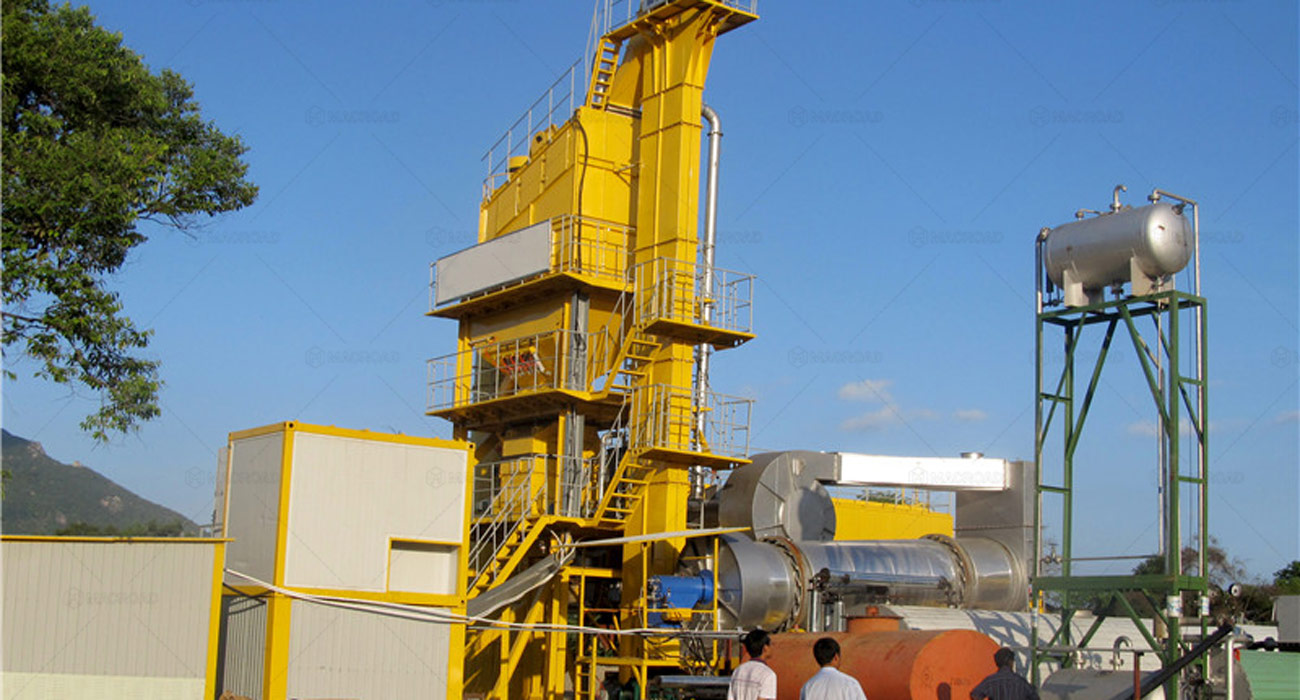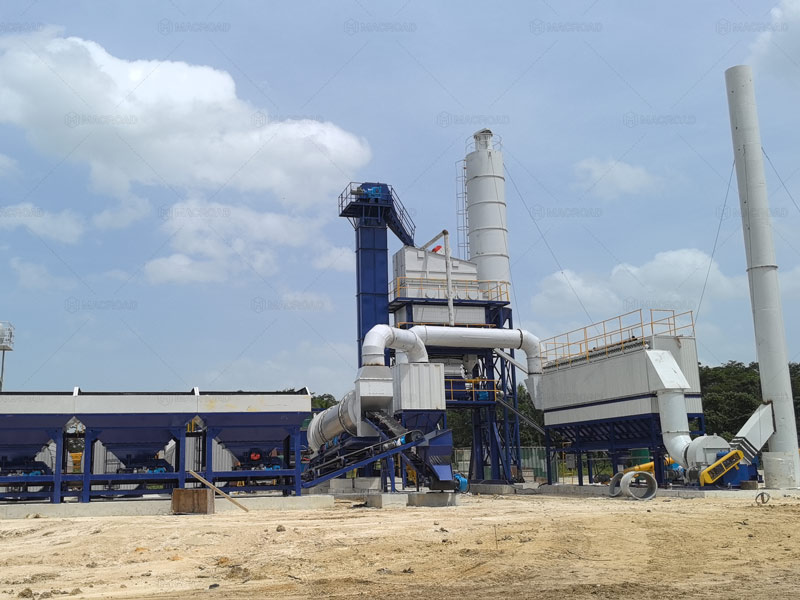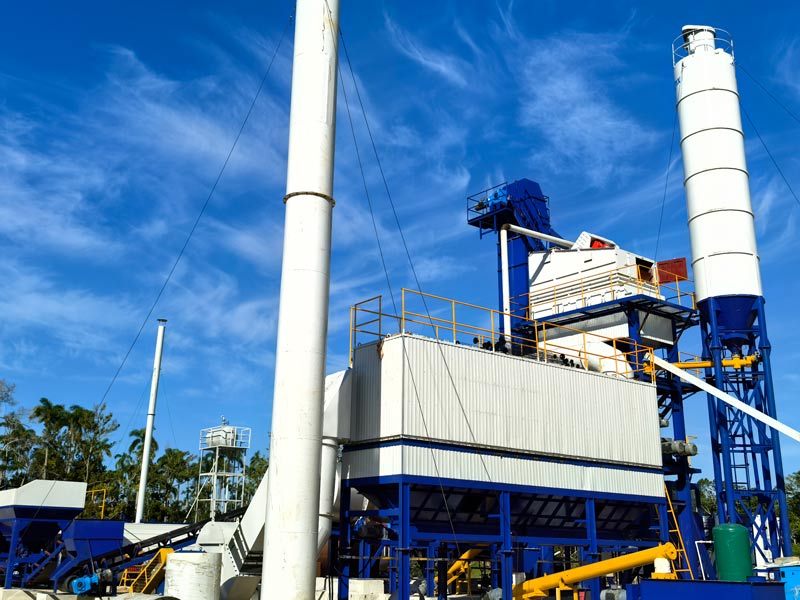In airport roads construction, achieving high precision in mixture quality while adapting to phased construction schedules is essential. The interplay between mobile asphalt plants and stationary asphalt mixing plants offers a strategic advantage in meeting these demands. Stationary plants provide stable production of large-volume, high-performance mixtures, while mobile plants can be deployed in temporary areas to optimize logistics and efficiency. This article explores how these two types of asphalt plants complement each other, enhancing construction efficiency and pavement uniformity in airport road projects.

The Role of Stationary Asphalt Mixing Plants
Stationary asphalt mixing plants play a critical role in airport roads construction, particularly in producing high-performance mixtures that can withstand the heavy loads imposed by aircraft. These plants are designed for continuous operation and can produce large volumes of asphalt with consistent quality. This reliability is essential for meeting the stringent specifications required for airport pavements, which must endure significant stress and harsh environmental conditions.
By utilizing advanced technology, stationary asphalt mixing plants ensure that the mixture’s properties, such as viscosity and temperature, remain within specified limits. This precision is vital for achieving the necessary durability and longevity of the pavement. Additionally, stationary plants can incorporate various additives to enhance the performance characteristics of the asphalt, making it more resistant to deformation and cracking.
Moreover, the ability of stationary plants to maintain stable production rates allows for efficient scheduling and planning in airport road construction. This consistency helps project managers coordinate their efforts, ensuring that materials are available when needed, which is particularly important in phased construction scenarios.

The Advantages of Mobile Asphalt Plants
In contrast, mobile asphalt plants offer unique advantages that can be particularly beneficial in airport construction settings. These plants are designed for mobility and can be set up quickly in temporary locations, such as auxiliary roads or parking aprons. This flexibility reduces transportation distances for raw materials and finished asphalt, leading to cost savings and improved efficiency.
Mobile asphalt plants can be particularly useful for smaller projects or phases of construction that require quick turnaround times. By deploying these plants closer to the worksite, contractors can respond rapidly to changing needs and conditions on the ground. This adaptability is essential in a dynamic environment like an airport, where construction schedules may shift based on operational requirements.
Furthermore, mobile plants can produce high-quality asphalt mixtures that meet the necessary standards for airport roads construction. While they may not have the same production capacity as stationary plants, advancements in technology have made these mobile units highly efficient. They can still produce mixtures that achieve the performance characteristics required for airport pavements, ensuring that all areas meet safety and durability standards.

Balancing Efficiency and Uniformity
The strategic division of labor between mobile and stationary asphalt plants enables airport roads construction projects to balance efficiency with pavement uniformity. By utilizing stationary plants for large-volume production of high-performance mixtures, contractors can ensure that the main runways and taxiways are constructed with the utmost precision and quality.
Simultaneously, mobile asphalt plants can be deployed to handle ancillary projects, such as connecting roads or parking areas, without compromising the overall timeline of the construction. This dual approach allows for a more efficient use of resources while maintaining the necessary uniformity across different pavement sections.
For example, using stationary plants for the primary paving operations ensures that the critical areas receive the highest quality asphalt. Meanwhile, mobile plants can efficiently manage the auxiliary work, ensuring that all parts of the airport road projects are completed on schedule.
In conclusion, the complementary roles of mobile asphalt plants and stationary asphalt mixing plants are essential for successful airport roads construction. By leveraging the strengths of each type of plant, contractors can achieve both high precision in mixture quality and adaptability to phased construction schedules. This collaborative approach enhances construction efficiency and ensures uniformity across all pavement sections, ultimately contributing to the safety and reliability of airport operations. Companies like Macroad play a vital role in providing the necessary technology and expertise, helping to optimize these processes for successful project outcomes.